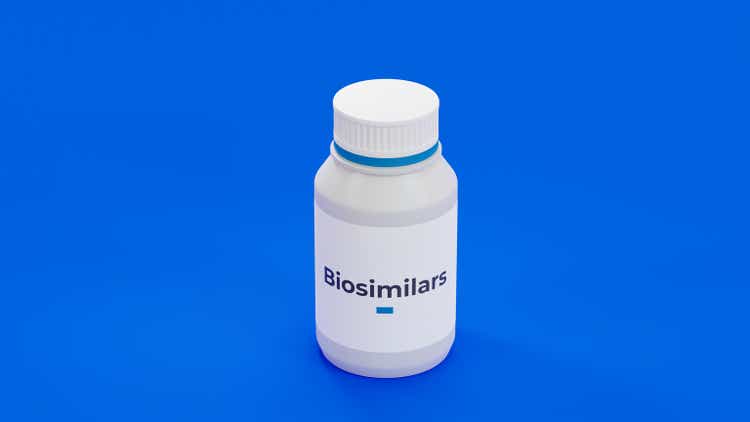
Carl Lokko
The Federal Trade Commission is backing draft guidance from the U.S. FDA that would make it easier for biosimilars — generic versions of expensive biologic drugs — to come to market.
The guidance would change current policy that requires a company to provide clinical switching studies to demonstrate that a biosimilar is interchangeable with the reference medication. Instead, a biosimilar applicant could provide a statement based on data in the biologic’s original Biologics License Application that the biosimilar is interchangeable.
“If implemented, the guidance would likely reduce barriers to entry and facilitate competition among biologic products by increasing the number of biosimilars designated as interchangeable,” the FTC said in a statement.
Biologic drugs, such as monoclonal antibodies, are among the most expensive medications, often used to treat conditions such as cancer and rare diseases. They can easily cost hundreds of thousands of dollars per year.
Biologics are granted 12 years of exclusivity — not including additional patent protection — shielding them from potential competition. For traditional small molecule drugs, it is only five years.
The Biosimilar Council says that it currently costs $100M-$300M to bring a biosimilar to market. In a May 2024 report, the group wrote that since the first biosimilar was approved in 2015 (58 have been approved to date) through the abbreviated licensure pathway, it has saved U.S. consumers and the healthcare system ~$24B.
A January 2023 IQVIA report projects cumulative biosimilar sales of $129B over the next five years. It also found 46% of all medicines spending is on biologics.
Pharmas and biotechs that could be most impacted by biosimilars include Pfizer (NYSE:PFE), Merck (NYSE:MRK), Johnson & Johnson (NYSE:JNJ), Bristol-Myers Squibb (BMY), Eli Lilly (LLY), Novartis (NVS), Roche (OTCQX:RHHBY), AstraZeneca (AZN), AbbVie (NYSE:ABBV), Amgen (AMGN), Regeneron Pharmaceuticals (REGN), and Gilead Sciences (GILD).
